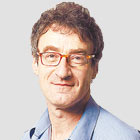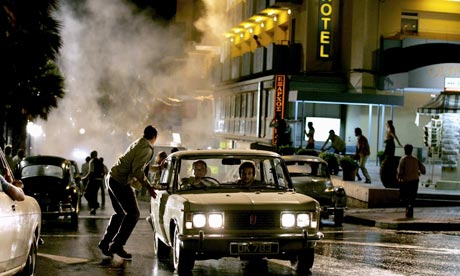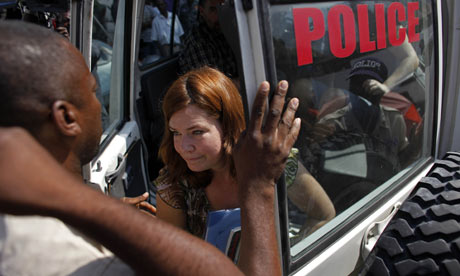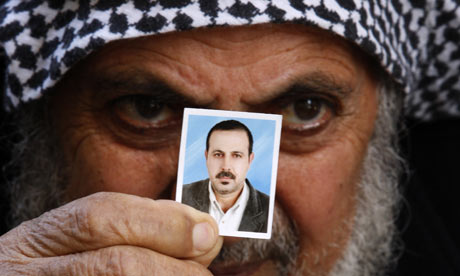Yo bien se lo que se debe a si mismo un cristiano. Si este hombre me hubiese llevado a la cumbre de una montana en Palestina, en una noche de luna llena, y desde alli, mostrandome ciudades razas e imperios adormecidos, me hubiera dicho sombriamente: "Mata al Mandarin, y todo lo que ves en valles y colinas sera tuyo", yo le habria replicado, siguiendo un ejemplo ilustre, con la mano levantada hacia las inmensidades consteladas. "Mi reino no es de este mundo!".
Conozco bien a mis autores. Mas eran veinte millones de pesos, ofrecidos a la luz de una vela de esperma, en la travesia de la Concepcion, por un sujeto de sombrero de copa, apoyado en un paraguas.
Entonces no dude. Y con mano firme repique la campanilla. Fue tal vez una ilusion: mas pareciome que una campana de boca tan ancha como el cielo repicaba en la oscuridad, a traves de Universo, con un son temeroso que ciertamente iria a despertar soles que dormian y planetas panzudos.
El extrano individuo llevo un dedo al parpado, y limpiando una lagrima que nublaba su ojo rutilante exclamo:
Pobre Ti-Chin-Fu!
...
Mas un sufrimiento mayor vino a amargar mis dias. Juzgandome arruinado, todos aquellos que mi opulencia humillo, cubrieronme de ofensas. Los periodicos, con triunfal ironia, publicaron mi miseria. La aristocracia, que balbuceaba adulaciones, inclinada a mis pies de Nabab, ordenaba ahora a sus cocheros que atropellasen en las calles el cuerpo encogido del escribiente de secretaria.
El clero, a quien yo habia enriquecido, me acusaba de hechicero, el pueblo me apedreaba y la viuda del Marques, cuando me quejaba de la dureza granitica de los garbanzos, poniase en jarras y gritaba:
_ Que quiere usted mas? Aguantese! Valiente perdulario!
Y a pesar de esta expiacion, el viejo Ti-Chin-Fu, estaba siempre a mi lado porque sus millones, que yacian ahora intactos en los bancos, eran desgraciadamente, mios.
Entonces indignado, volvi a mi palacio y a mi vida de lujo. Aquella noche, de nuevo el resplandor de mis ventanas alumbro el Loreto, y por el porton abierto vieronse, como en otro tiempo, negrear con sus calzones de seda, las largas filas de lacayos decorativos.
Luego, Lisboa, sin excepcion, se arrojo a mis pies. La viuda de Marques me llamo llorando: Hijo de mi corazon".
Los periodicos me otorgaron los calificativos que, segun la tradicion, pertenecen a los dioses. Fui el omnipotente, el omnisciente! La aristocracia me beso los pies como a un tirano y el clero me incenso como a un viejo idolo. Y mi desprecio por la humanidad fue tan grande que se extendio hasta el mismo Dios que la creo.
Desde entonces, una saciedad enervante me mantuvo durante semanas enteras tendido en un sofa, mudo y terrible, pensando en la felicidad de "no ser..."
De Queiroz, E. El Mandarin. PEPSA Editores. Mexico, D.F. 1975. Primera Edicion. Pags. 23-24, 124-125.
No deseo orientarme al recuento de frivolas comparaciones que podrian encontrar en cualquiera de los programas televisivos. Prefiero concentrarme en aquellos servicios publicos que me han impresionado gratamente, y que no envidiarian nada a sus contrapartes de los so called developed countries.
_ Dificil de entender. Porque crees que tu prima se esta moviendo -esa es mi primera pregunta on our way back home.
_ Its all daydreaming, she got to experience what we already saw.
_ Well, obviously I havent seen that much in the city, but the local services look quite good so far. When I arrived to your international airport it was so tidy and up to date that germans will envy it for sure -trato de expander mi pensamiento con el fin de obtener mejor informacion.
_ Exactly.
Con las actuales condiciones de vida, no es facil imaginarse que hace un poco mas de medio siglo esta fue una de las principales zonas de batalla entre dos visiones contrapuestas del mundo.
_ So tell me, please. Is Mexico mainly industralised? -me lanza esa dificil cuestion la progenitora de la rojilla.
Mmm, como salgo del atolladero sin rasparme con una respuesta honesta?
_ Bien, not that much. Hasta donde se, tres son nuestros principales ingresos: petroleo (crudo, por supuesto), las remesas de nuestros trabajadores fuera del pais (en los EUA la mayoria), y el turismo -sintetizo apretadamente.
Nuestra ultima fuente de ingresos llama especialmente su atencion.
_ Why then not so many koreans are travelling to Mexico?
_ No tengo la menor idea, si mal no recuerdo, Mexico atrae turistas de todas partes del mundo solo por debajo de Italia y Espana -trato de justificar la poca afluencia de viajeros coreanos a nuestro pais.
Otra de las amigas de la rojilla de plano desistio vivir fuera de su pais. Le ha costado sudor y lagrimas durante los primeros tres meses, pero ahora es propietaria y administradora de una pequena guarderia infantil. Aunque esta en la planta baja de un edificio departamental, el pequeno local esta bien acondicionado: dos cuartos de juego, dos banos con regadera y una cocina forman el changarrito que si cuenta con los muuuy indispensables smoke detectors.
El esquema de subrogacion tambien se aplica aqui. Ahora mismo esta tratando de llegar al limite inferior de pequenos para obtener un apoyo gubernamental.
_ Se tuvo que endeudar mucho para abrir el kinder y estuvo sometida a un stress insoportable -me aclara la rojilla, pero al final ha salido poco a poco.
_ Asi es, he tenido de todo; hasta uno de los chamaquillos pesco la influenza (porcina) -nos dice con un semblante que recuerda una no muy lejana preocupacion.
Una involuntaria sonrisa mia llama sin embargo su atencion.
_ What? you dont believe it? -me inquiere incredula.
_ No, I do believe you, but you reminded me all that hype -le digo.
_ Hype?, why a hype? -pregunta sorprendida.
_ Pus porque a lo mejor si creo que exista la enfermedad pero no creo que sea pandemica -evito entrar en el terreno of an one-sided artificially instigated tale.
Indeed, it is a really complicated task when they havent heard both sides of the story.
_ When?, when is gonna change? You keep telling me that, but I cannot see it -me suelta impaciente la rojilla.
_ Because you are not reading the right sources, babe. I can assure you that big transformations are occurring right in front of your eyes without you even notice them -evito lo mas que puedo la condescendencia. Did you know that analysts are predicting one of the most largest socioeconomic develeopments of the world around here? This is the region with one of the most promising futures, luv. So, now can you see why is not so easy to understand your relative likes to live abroad now?
_ Yes, it wasnt easy to get it -me dice levantando su mirada como tratando de conjurar un pasado no muy lejano.
_ Por supuesto que no. Pero al menos lo intentaron. No es sano eso de pretender tener la razon unica, pero hay locos que ciertamente nos muestran ciertas claves. Recuerdas a tu paisano en Cambridge que estudiaba las caracteristicas principales del desarrollo economico? El no hablaba de abrir impudicamente las puertas al comercio exterior, verdad?
_ So what do you think your country is lacking? -pregunta inocentemente.
_ See, again its hard to spot one factor, but Im not gonna explain it in my own pseudo-scholar words, lets one of the best speak himself:
_ So, what has been shocking you most of what you seen here so far?
_ Mira, yo se que no he visitado los barrios que podrian darme otra impresion de tu pais (se acepta financiamento desinteresado para hacer una de mis ya miticas investigaciones de campo across "the wall", supongo que a un mexicanito no le seria imposible conseguir una visa de turista), pero lo que no esperaba es no encontrar (so far) a big gap in social inequality somewhere in the city.
_ Why do you think is like that?
_ Parece que una de las tacticas infalibles para mantener la paz social es reducir la brecha entre clases. So, protecting your local economy and supporting small business like the one of your mum and friends seems to be relatively working in your country.
Indeed, There are certain guys who think they are above any law. In Mexico is not reducing poverty what matters but pushing a military solution that lacks of popular support (now also including our very well lubricated congress). En su mundo irreal, no es ya necesario vender esperanza, sino avanzar una estrategia propagandistica de logros imaginarios. Cuando las predicciones (largamente anunciadas por la mentes mas preclaras del planeta) de los grandes cambios globales inunden nuestro pais, y la clase politica y su ejecutivo se vean empequenecidos por la historia, habremos de ver si somos capaces de aprovechar, para empujar en forma consensuada, nuestras estrategias de cara mas humana, que reduzcan radicalmente las desigualdades socioeconomicas en nuestro Mexico secuestrado. AL TIEMPO.
M@RCOrea_del_Sur;
Seul, C(alando_hechos);
19/02/10.
PREGUNTAS SIN RESPUESTA:
Cadena de Mando.
A tricky issue. El articulo 39 de nuestra constitucion nos otorga la soberania nacional. Now, en condiciones como las actuales en las que las medidas gubernamentales no parecen gozar del apoyo popular general (maybe as a result of their original sin). A quien deberian teoricamente la obediencia ultima nuestras fuerzas armadas: al ejecutivo federal o al pueblo?
ADIOS (EL SOLDADO)
ENCORE APOCALIPTICO?:
Chossudovsky: US will start WW3 by attacking Iran
... being edited.








